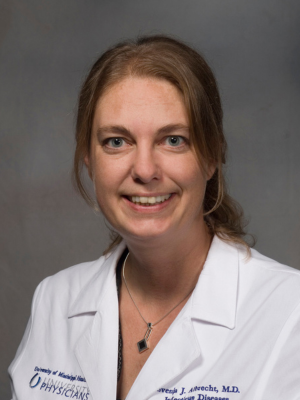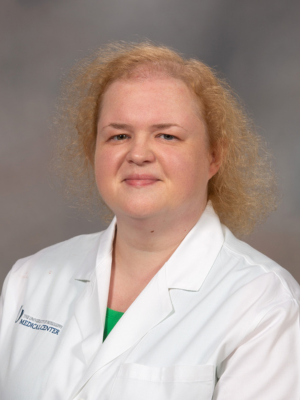Hep B vaccine a box worth checking, specialists say
While the Hepatitis B vaccine isn’t a priority for most Americans, it may be a good precaution against the highly contagious liver disease.
The prevalence of the Hepatitis B virus worldwide and its persistently measurable presence in the United States prompted the Centers for Disease Control and Prevention in 2022 to recommend universal adult vaccination to protect those 18 to 59 from its effects.

“The rationale behind that was that vaccination based solely on risk wasn’t working, and it would be a better effort to curb HBV incidence,” said Dr. Svenja Albrecht, infectious disease specialist at the University of Mississippi Medical Center.
“Outside the U.S., HBV acquisition occurs mother-to-child before birth. In the U.S., much of HBV transmission is sexual and possibly remote during adolescence and young adulthood. So, many adults may have partners or exposures they are unaware of.”
HPB is among the five main such-named viruses that cause inflammation of the liver tissue and produce symptoms ranging from poor appetite and fatigue to jaundice, diarrhea and cirrhosis of the liver. The disease is spread through bodily fluids and goes from acute to chronic if symptoms present later in life versus just the first six months after exposure. The vaccine is most effective in those with the acute version.
The B and D variants are most similar among the types of hepatitis, with the latter being a satellite infection in the presence of the former. The A, C and E types are spread mainly when food and water supplies are contaminated with animal feces and through intravenous drug usage.
The B variant is also the world’s most prevalent of the five, infecting 254 million people worldwide in 2022, the most recent year statistics are available from the World Health Organization. In the U.S., a slight majority of cases in 2022 were in those aged 40 to 59, with about 640,000 adults estimated to have the chronic, or long-term, iteration.
In Mississippi, cases of the B version reached 34 in 2020, the most recent full year of statistics available from the Mississippi State Department of Health. Cases in 2019 had reached 49, according to MSDH.
Cases locally are identified through screening and, overall, remains tied to more risk factors than just sexual activity, Albrecht said, adding the vaccine – first made available in the U.S. in 1982 – is safe and effective.
“A common misperception among our patients is they don’t think of themselves as being at risk,” she said. “Up until this recent recommendation, HBV vaccination was universal for children and adolescents but recommended only for certain groups, such as those with underlying conditions and high-risk behaviors.”

Most patients seen in hepatology at the Pavilion at UMMC have chronic HBV and can’t be helped by the vaccine, but the relatively new advice from CDC brings some hope for those whose symptoms can be prevented, said Dr. Laura Smart, a specialist in liver transplants, gastroenterology, pancreas and liver and bile duct cancers.
“We do see some acute liver injury or failure related to acute HBV, which the vaccine would prevent,” Smart said. “Hopefully with increased vaccination rates we'll see fewer of those patients. Most of the patients with HBV know there is a vaccine available, but the patients with other liver diseases I see are often not as knowledgeable. It is very important for those patients to be vaccinated for Hepatitis A and B and we try to do that in our clinic when we can.”
The CDC estimated more than 10 deaths per 100,000 people screened would be avoided as a result of universal screening, among other negative effects of the disease, adding up to a 99% chance that it would be cost-effective compared with current practice.
Albrecht says infected adults usually have “spontaneous clearance” of the disease by six months’ time, but about 10 percent will develop the chronic version.
The above article appears in CONSULT, UMMC’s monthly e-newsletter sharing news about cutting-edge clinical and health science education advances and innovative biomedical research at the Medical Center and giving you tips and suggestions on how you and the people you love can live a healthier life. Click here and enter your email address to receive CONSULT free of charge. You may cancel at any time.



